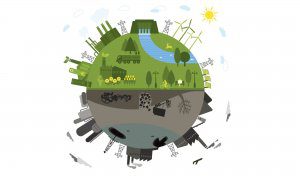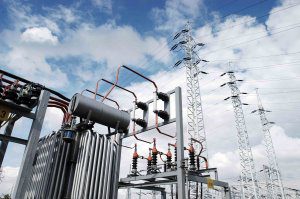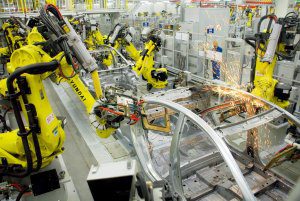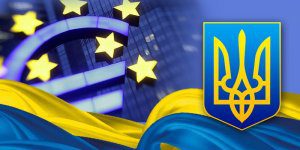
KYIV. June 8 (Interfax-Ukraine) – The Energy Efficiency Fund aimed to reduce natural gas consumption and lower households spending on housing and utilities will start work in Ukraine in January 2017, Vice Prime Minister and Minister for Regional Development, Construction, Housing and Utilities Hennadiy Zubko has said.
“The launch of the Fund is a national strategy to protect, support our citizens as part of energy efficiency policy, [it’s] a step towards the country’s energy independence. Our plans are to launch the Fund as early as in January 2017. These are ambitious plans, as legislation should be taken by that time with subsequent budget allocations. A government resolution on the creation of the Fund, a draft law on the Energy Efficiency Fund, and other legal acts are expected to be adopted,” he said at a National Reforms meeting in Kyiv on Tuesday.
The launch of the Fund requires that the draft law on the Energy Efficiency Fund should be drawn up and sent to the Verkhovna Rada by the end of this summer. Lawmakers are expected to vote on the bill by the end of October, and in the coming month an international agreement is due to be signed.
What is more, parliament is expected to pass a bill on housing and utilities services by the end of August, and bills on energy efficient buildings and on commercial accounting should be passed by the end of October.
By the end of the summer, the Cabinet should elaborate procedures to fully or partly monetize housing and utilities services.
Zubko says that the recent meeting of the National Reforms Council considered a model of the future Fund, which is being created on the basis of partnership of the state, international financial organizations and donors. “We’ve developed an efficient model of the Fund jointly with partners from the European Union and the German government. Its innovation has been proven in neighboring countries – Poland, Lithuania, and the Czech Republic,” he said.
He said he was sure that the Fund would be efficient, transparent and free from corruption.
“Its mission is to safeguard citizens, improve their housing conditions, reduce gas consumption and reduce households’ utilities bills, make a step towards Ukraine’s energy efficiency. The Fund will draw investment in financing energy efficient projects. These will be low-priced long-term loans, donor and state financing, citizens’ savings on housing subsidies. What is more, the Fund will propose available standard energy efficiency projects for multi-storey residential buildings, recommendations for individual houses,” he said.
An ad hoc group, which has analyzed the Fund’s possible activity, concluded that by 2021, its activity will bring UAH 10 billion in tax revenue to the budget, will annually save about UAH 5 billion in budget funds spent on subsidies, UAH 1.5 billion (about $30 million) on the purchase of import gas.

KYIV. June 8 (Interfax-Ukraine) – Ukraine’s State Property Fund has reviewed privatization plans for 2016, having slated the sale of almost 100% of PJSC Sumykhimprom chemical plant’s shares from October to November 2016.
PJSC Centrenergo remained on privatization plans in November, according to the privatization scheduled published by the Vidomosti Pryvatyzatsii privatization bulleting.
Tenders to sell power distribution companies, as was originally planned, are scheduled for September-October 2016.

KYIV. June 8 (Interfax-Ukraine) – Ukraine’s State Property Fund (SPF) has started preparing for the sale of 25% plus one share stake in public joint-stock company Sumyoblenergo, an electricity supply company at a stock exchange.
According to SPF order No. 1047 of May 30, the documents from the company’s board chairman are to be passed to the property appraisal department of the fund before Jun 21, 2016.
The fund on April 15 scheduled the sale of the blocking stake in Sumyoblenergo for September 2016.
Businessmen Ihor Kolomoisky and Konstantin Grigorishin hold around 72% of shares in Sumyoblenergo.

KYIV. June 8 (Interfax-Ukraine) – Ukrainian vehicle manufacturers produced 591 vehicles in May 2016, which was 33.7% up on May 2015, which is almost twice the indicator registered in April 2016, the Ukrautoprom Association.
The growth was due to the manufacture of 473 passenger cars at PrJSC Eurocar, which was 2.5 times up on April 2016 (only Eurocar produced cars) and 63.7% up on May 2015 (all 289 cars were produced by PJSC ZAZ, Eurocar did not manufacture them), the association said on in its website.
Eighty-one commercial vehicles were manufactured in May 2016, which was 23% down on May 2015 and 26.4% down on April 2016. Eighty vehicles were manufactured by PJSC AutoKrAZ, and one by Cherkasy Bus Plant.
Last month, 37 buses were produced – all by Cherkasy Bus Plant, which manufactured only one bus in April. Bus output in May 2016 was 23% down on May 2015, when 20 buses were produced by Chasiv Yar Buses, nine buses by ZAZ and 19 by Cherkasy Bus Plant.
Vehicle production in January-May 2016 slowed by 13.5% year-over-year (in the first four months the decline was 27.5%), to 1,667 vehicles.
In particular, the output of passenger cars grew by 2.2% from January-May 2015, to 1,288 cars due to an 86.4% increase in PrJSC Eurocar’s production, to 1,284 vehicles, while PJSC ZAZ manufactured only four passenger cars against 571 cars a year before.
Commercial vehicles output was 331 units (34.5% down), including 330 vehicles produced by AutoKrAZ (27% down) and one vehicle by Cherkasy Bus, which produced 44 vehicles in the first five months of 2015.
Buses in January-May 2015 were manufactured only by Cherkasy Bus (38 buses) and Bogdan Corporation (10 buses), bus output in the five months of 2015 was 70.4% down year-over-year.
Thus, since the beginning of the year, only PJSC AutoKrAZ and PrJSC Eurocar have been working with insignificant load, while Bogdan Corporation and Etalon, PJSC ZAZ and Chasiv Yar Buses have been standing idle. Cherkasy Bus Plant has almost halved output.
As was reported, vehicle production in Ukraine in 2015 fell by 71.5% from 2014, to 8,244 vehicles.

KYIV. June 7 (Interfax-Ukraine) – The government office for European Integration has drawn up a report on the implementation of the Association agenda and the Ukraine-EU Association Agreement for January through May 2016.
The report posted on the government’s website on Monday consists of several sections concerning reforms in various spheres. It is based on information provided by government agencies involved in the implementation of relevant tasks.
The report aims at informing Ukrainian citizens, representatives of nongovernmental organizations and international society, including EU institutions, about Ukraine’s progress in implementing goals of political association and economic integration with the EU.
The report contains information about bills returned to meet the provisions of Part 3 of Article 105 of the Verkhovna Rada regulations.
It contains information about international technical assistance projects to accomplish missions in the area of EU integration and the Association Agreement and gives examples of using this assistance.
The document summarized expert assessments for the bills being discussed by parliament that touch on top priorities of implementing the Association agreement, starting with the creation of the free trade area and sector cooperation, if they comply with the Agreement and EU legislation.

KYIV. June 7 (Interfax-Ukraine) – Ukraine’s Infrastructure Ministry will toughen control over the issue and use of permits for international transportation by road.
“Tomorrow Yuriy Lavreniuk, Yehor Stefanovych and Mykhailo Noniak will start digitizing these documents for online exchange of data with the Ukrainian customs office and partner countries. The data documents trucks crossing Ukraine’s borders. The haulers or unfair persons who create the artificial shortage [of permits] would be severely punished,” Ukrainian Infrastructure Minister Volodymyr Omelyan wrote on his Facebook page.
He added that the matter with Ukrainian haulers that recently faced inconveniences with crossing the Turkish border has been settled.
“Next week we will hold additional consultations with Turkey to avoid such cases,” he said.
The minister said that this problem is systemic.
“We have many permits for international transportation that are passed from one hands to another and become a source of corruption instead of working. There are frequent cases when Ukrainian haulers complain about the absence of the possibility to ship cargos to other states, while neighboring countries say Ukrainian haulers have a lot of unused permits,” the minister said.